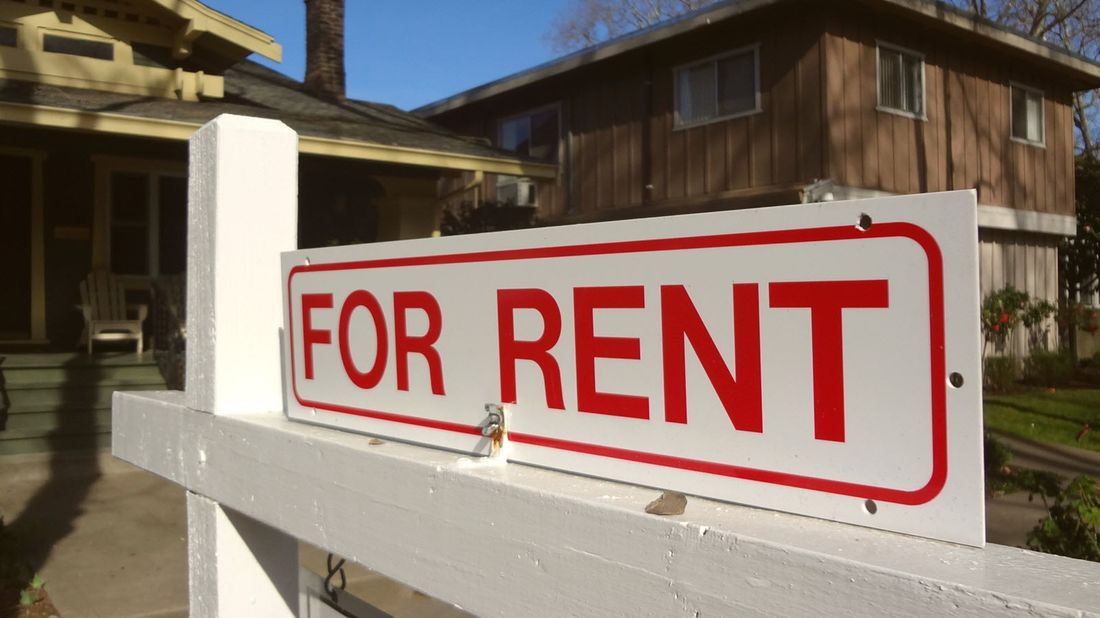How I Supported My Family by Becoming a Landlord

Becoming a landlord has its benefits. If you do it right, you may eventually be able to sit back and watch money roll in on a monthly basis.
It’s a big leap. For starters, you should be on relatively solid financial ground. But if you're ready, it could supercharge your income.
Dustin Heiner, a 38-year-old father of four in Phoenix, currently takes in about $10,000 per month, thanks to his rental properties. Here, he talks about how he did it.
My passion for real estate runs deep. My dad ran a construction business, so I grew up with a natural curiosity for it all. 11 years ago, I was earning about $45,000 per year as an IT analyst for a Sheriff's Department in California, but I was itching to break into real estate. Unfortunately, California was anything but cheap.
So I did some digging around in other markets and stumbled upon a $17,000 single-family home in Youngstown, Ohio. I flew out to close the deal and dipped into our savings to buy the home outright. I began renting it out for $550 a month shortly after. From there, I gradually saved up the profits and also began putting away cash from my paychecks to buy similar properties in Texas and Arizona.
I factor in every expense you can think of, from maintenance and repair costs to property manager fees.
Building a sustainable rental property business isn't an overnight process. Eight years and 17 properties later, my income from my properties finally caught up to my then $78,000 salary. It took me another year and a half to find the courage to quit my 9-to-5, but I've continued chugging along and now rent out close to 30 properties throughout the country. Thanks to my business, we moved to Phoenix and now live 100 percent off our real estate investments, all of which are single-family homes.
DECIDING WHAT TO BUY
My personal rule of thumb is to never buy anything that won't net me at least $250 to $350 a month — that's after paying any closing costs, the monthly mortgage (if I don't buy it in cash), taxes, insurance and everything else. I factor in every expense you can think of, from maintenance and repair costs to property manager fees (since I don’t live near the properties, I hire someone to manage them). The ideal scenario for me is to unlock that cash flow without taking out a mortgage.
Once I buy, I build up a little emergency cushion for each property; usually one to two months' worth of rent. This way if the furnace breaks, I'm not reaching for a credit card. Having a tenant default on the rent is always a risk, but I run background checks to help lower the odds.
WHAT I’VE LEARNED
1. Property managers are a must! On average, roughly 10 percent of the monthly rent goes directly to them, and I wouldn't have it any other way. They're the ones who address repairs and any day-to-day issues that might come up, from a leaky pipe to a broken garbage disposal. For an additional charge, most property managers will even help you find new tenants when a lease ends.
2. It’s not a hobby. Once you get going, you have to treat it like a business. Rent is due on the first of every month, and it's late on the third. If I don't receive payment by the fifth of each month, I issue a three-day notice before starting the eviction process.
If I have someone who's been a longtime, reliable tenant, I'm more than happy to work with them a bit if they fall on hard times — I certainly have compassion, but when your family depends on that income, you have to protect yourself.
3. It’s not personal. Never treat a new investment property like it's your own home. Try to keep your emotions out of it. If the numbers don't work, feeling emotionally attached to a property could cloud your judgment.
Feel better about taking action on your dreams.
Your advisor will get to know what’s important to you now and years from now. They can help you personalize a comprehensive plan that gives you the confidence that you’re taking the right steps.
Find your advisor




